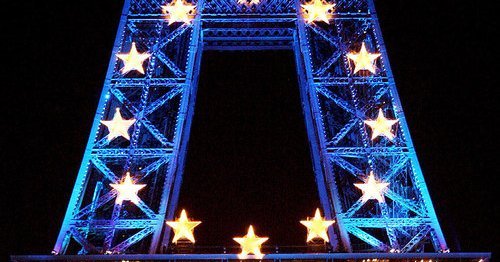Should the Lisbon treaty be ratified we will finally have some of the important institutional changes which has been waiting in the lobby for a few years now. Among these the creation of the position of President of the European Council and of an upgraded and “double hatted” High Representative for the Foreign and Security Policy.
In this short article I wish to underline why I believe that a more careful analysis is needed in order to clarify some of the opportunities and risks that the creation of the position of President of the Council determine in the EU framework. In particular I believe we can identify two main risks/opportunities: the institutional ones and the political ones.
The Political Aspects
With regards to the political aspects, it is often underlined that it would be important to have a high level personality as it would be able to use its diplomatic clout when dealing with the Member States as well as with the EU’s external partners. However it could be argued that while this could be important in the relations between the Member States, due to its role of “facilitator”, on the other hand it might end up creating tensions with the President of the European Commission and the High Representative when dealing with international issues. Both the European Commission President and the High Representative might in fact risk to fall in the shadow of a well know and influential President of the Council, reducing the relevance of their roles.
In practice what could happen is a difficult “cohabitation”,
In practice, what could happen is a difficult “cohabitation”, as the French would say, with the additional difficulty that the competences and tasks of the three are not yet defined in a treaty to which the parties could appeal. The result could be an even less coherent representation of the EU positions, not only with regards to the policies themselves but also to the representation i.e. who represents what?
Institutional Aspects
From a more strictly institutional point of view we can then assess the risk of having a Commission (supranational organ), subordinated to the Council (international organ). This would clearly be a serious step backwards with regards to the European integration process from a federalist perspective. Furthermore it could be codified in the coming years as “practice” of the relations between the institutions determining, in so doing, a long lasting limitation of the powers of the Commission.
From here stems the preoccupation that has been shown by President Barroso on October 7th a the European Parliament when he underlined that: “The European Commission will not accept the idea that the President of European Council is the President of Europe."
Also a strong President of the European Council, having as main task the “facilitation” of the relations and agreements between the Member states, would have the opportunity to define directly or indirectly the agenda of the 27 Member States within the Council. This would also allow him to decide the amount of diplomatic pressure to use to see passed some procedures and piece of legalisation which are keener to his own interests.
For this reason it is of key importance, especially in the case of a renowned and influential personality, that he/she is willing to cooperate on an “equal footing” with the other institutional figures and that shares the European integration project in all its developments e.g. Euro, Schengen. This is important in order to build a sort of balance of powers between the roles and to avoid eventual conflict of interests. Such an approach does not necessarily imply that the Candidate must be coming from a member state that currently has in place all the the “European projects” even if this would clearly help. In any case he/she must have showed commitment to the European project and should clearly state his or her approach.
To conclude we are again in front of a key moment of the European integration process. Clearly there is a great opportunity but also a risk, which is increased by the current vacuum in the definition of the tasks and competences of this new key post.
It will be the first President of the European Council to shape this position and to define the potential and the limits in the framework of the “institutional game”.


Follow the comments: |
|
